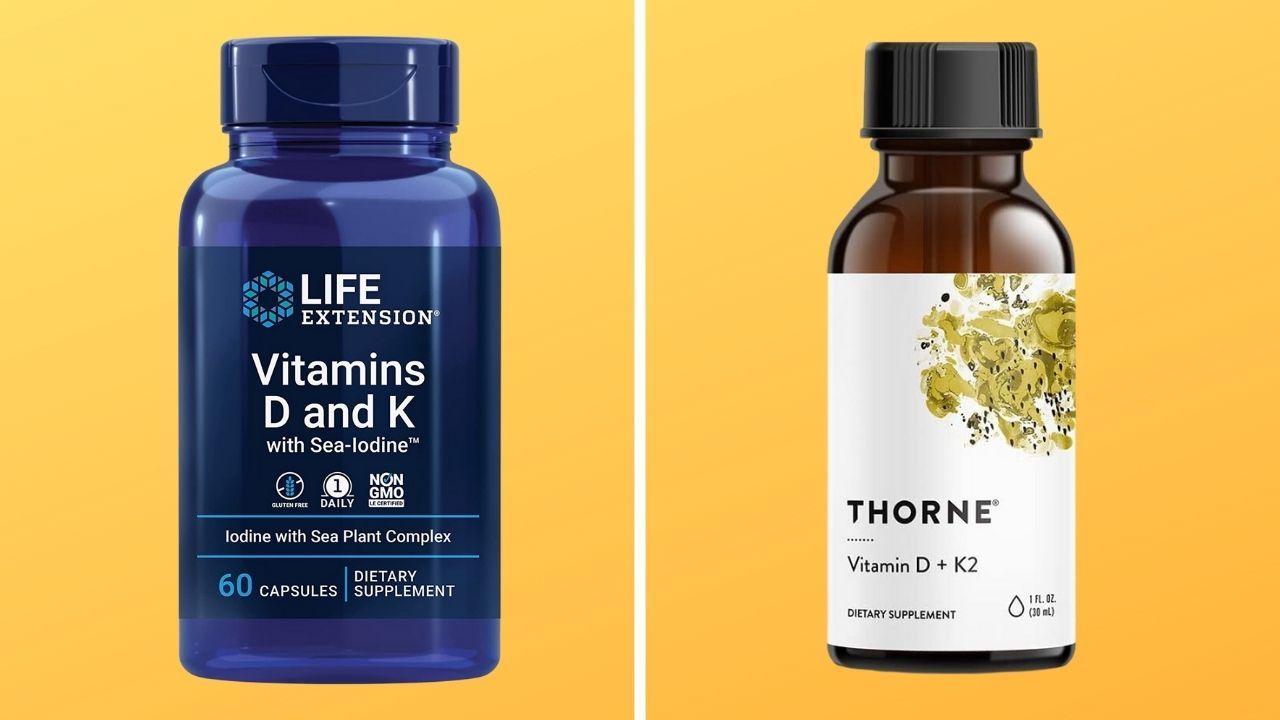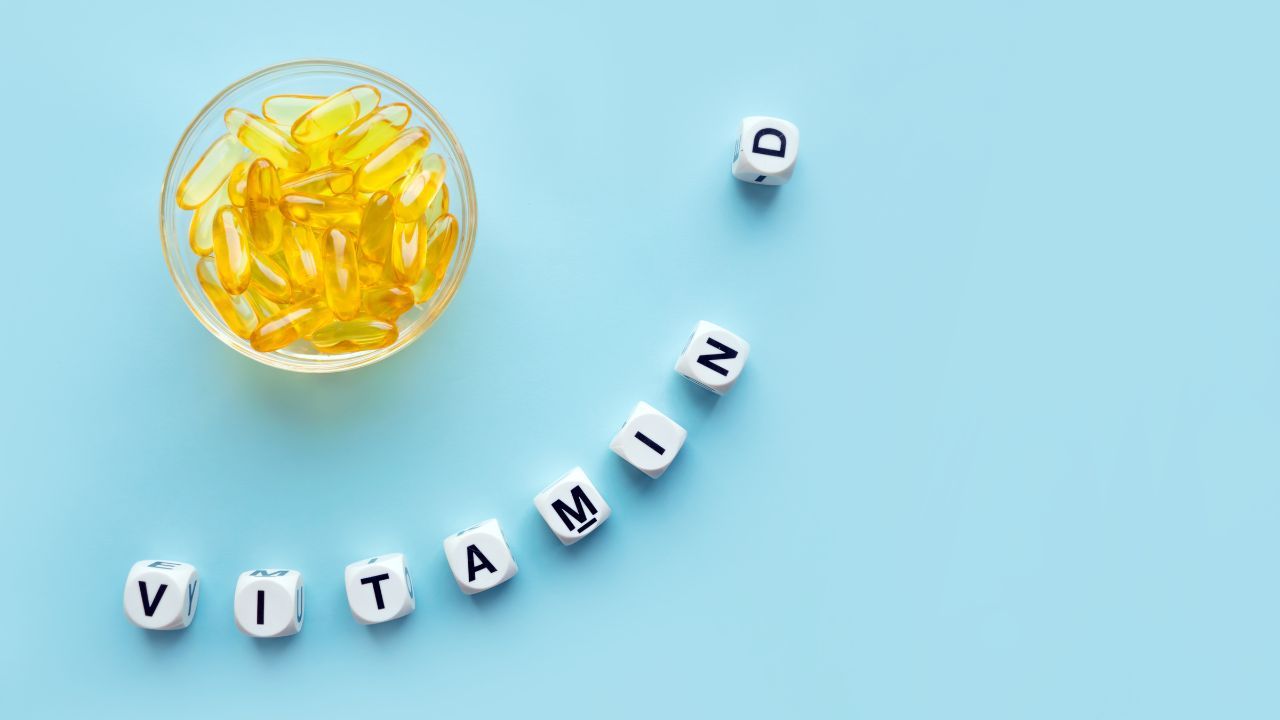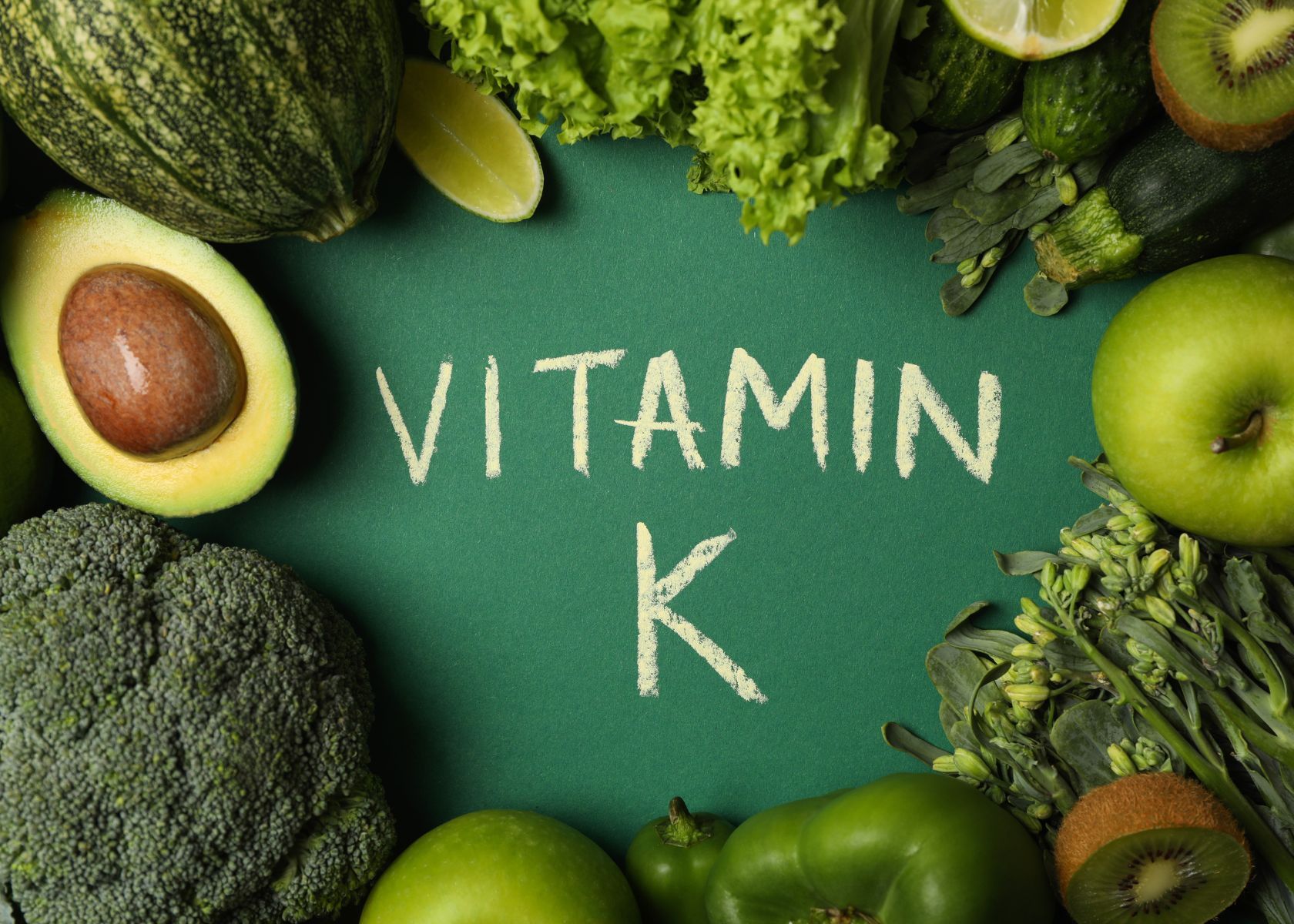
What Is Vitamin D3 And K2 Good For | The Dynamic Duo!
Get the lowdown on vitamins D3 and K2! Uncover their benefits, recognize deficiency symptoms, and learn to strike the right balance for wellness.
If you're looking to improve your overall health, you might have heard about the importance of vitamins D3 and K2.
These two essential nutrients play vital roles in keeping our bodies functioning at their best.
Let's take a dive into what these vitamins are, their benefits, and how you can make sure you're getting enough of them.
What is Vitamin D3?
We can obtain this essential nutrient from a few different sources:
- Sun exposure: Our skin naturally produces vitamin D3 when exposed to sunlight.
- Diet: Foods such as fatty fish, egg yolks, and fortified foods like milk and orange juice contain vitamin D3.
- Supplements: If you're not getting enough vitamin D3 from sun exposure and diet, supplements can help fill the gap.
Vitamin D Deficiency
The National Institute of Health warned that having low vitamin D levels is linked to a higher frequency of cold and flu infections.
Vitamin D deficiency is a common problem that can seriously affect your health. But don't worry, we're here to help! Let's explore the causes, symptoms, and ways to get more to help you overcome a deficiency.
Causes of Vitamin D Deficiency

There are several factors that can contribute to vitamin D deficiency, including:
- Limited sun exposure: Since sunlight is a major source of vitamin D, living in regions with limited sunlight or spending most of your time indoors can contribute to deficiency.
- Diet: A diet lacking in vitamin D-rich foods, such as fatty fish, egg yolks, and fortified dairy products, can lead to deficiency.
- Skin type: Individuals with darker skin tones have more melanin, which reduces the skin's ability to produce vitamin D from sunlight.
- Age: As we age, our skin's ability to produce vitamin D decreases, increasing the risk of deficiency.
- Malabsorption: Certain medical conditions, such as Crohn's disease, celiac disease, and kidney or liver disorders, can affect the body's ability to absorb vitamin D from food.
Symptoms of Vitamin D Deficiency
Vitamin D deficiency can manifest in various ways, with some common symptoms including:
- Fatigue and general weakness
- Muscle pain and cramps
- Joint pain and stiffness
- Bone pain or fractures
- Mood changes, such as depression or irritability
- Weakened immune system and frequent infections
In severe cases, vitamin D deficiency can lead to conditions like rickets in children (characterized by soft, weak bones) and osteomalacia in adults (resulting in weak bones and muscle weakness).
Health Benefits of Vitamin D3
There are numerous health benefits associated with vitamin D3, including:
- Bone health: Vitamin D3 helps our bodies absorb calcium, which is essential for strong bones and teeth. Think of it as the glue that holds our skeletal structure together!
- Immune system support: Vitamin D3 plays a crucial role in maintaining a healthy immune function, helping us ward off infections and illnesses.
- Mental health and mood regulation: Some studies suggest that vitamin D3 may have a positive impact on mental health, including reducing symptoms of depression and anxiety.
- Cardiovascular health: Vitamin D3 has been linked to a reduced risk of cardiovascular disease by helping regulate blood pressure and inflammation.
- Cancer prevention: Research indicates that vitamin D3 may have potential cancer-fighting properties, although more studies are needed to confirm this.
How to Get Enough Vitamin D3
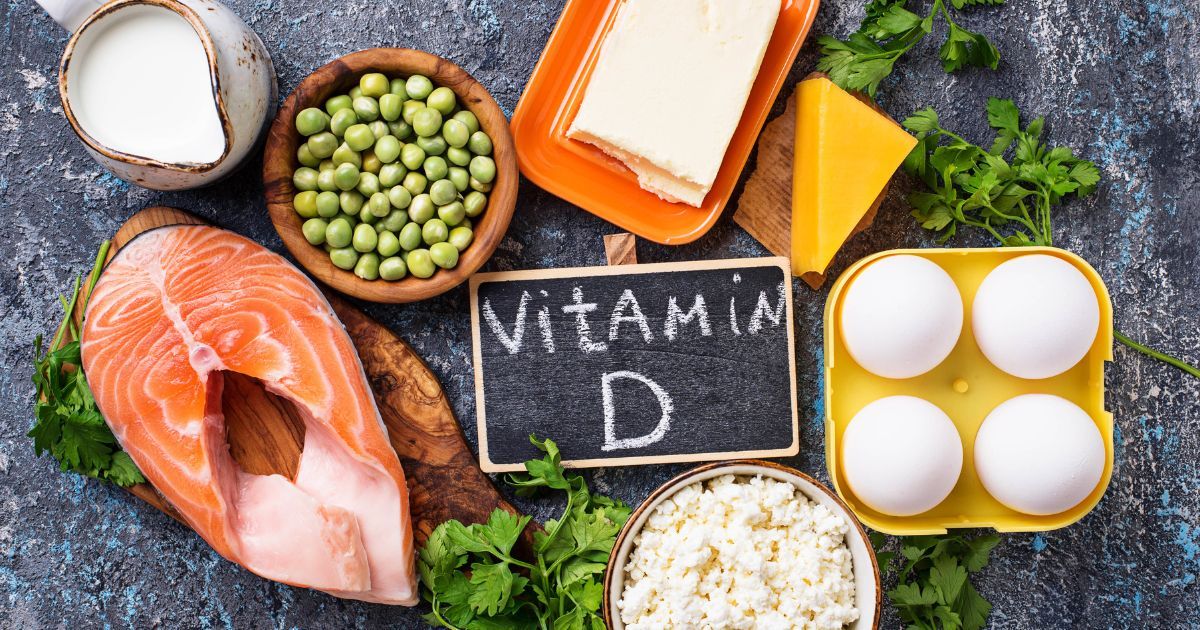
Here are some tips to ensure you're getting enough vitamin D3:
- Sun exposure: Aim for 10-30 minutes of sun exposure on your face, arms, and legs a few times a week, depending on your skin type and location.
- Diet: Incorporate vitamin D3-rich foods into your meals, such as salmon, tuna, and fortified dairy products.
- Supplements: Consult with your healthcare provider to determine if vitamin D supplementation is right for you.
| Age | Male | Female | Pregnancy | Lactation |
|---|---|---|---|---|
| 0-12 months* | 10 mcg (400 IU) | 10 mcg (400 IU) | ||
| 1–13 years | 15 mcg (600 IU) | 15 mcg (600 IU) | ||
| 14–18 years | 15 mcg (600 IU) | 15 mcg (600 IU) | 15 mcg (600 IU) | 15 mcg (600 IU) |
| 19–50 years | 15 mcg (600 IU) | 15 mcg (600 IU) | 15 mcg (600 IU) | 15 mcg (600 IU) |
| 51–70 years | 15 mcg (600 IU) | 15 mcg (600 IU) | ||
| >70 years | 20 mcg (800 IU) | 20 mcg (800 IU) |
| Age | Male | Female | Pregnancy | Lactation |
|---|---|---|---|---|
| 0-6 months | 25 mcg (1,000 IU) | 25 mcg (1,000 IU) | ||
| 7–12 months | 38 mcg (1,500 IU) | 38 mcg (1,500 IU) | ||
| 1–3 years | 63 mcg (2,500 IU) | 63 mcg (2,500 IU) | ||
| 4–8 years | 75 mcg (3,000 IU) | 75 mcg (3,000 IU) | ||
| 9–18 years | 100 mcg (4,000 IU) | 100 mcg (4,000 IU) | 100 mcg (4,000 IU) | 100 mcg (4,000 IU) |
| 19+ years | 100 mcg (4,000 IU) | 100 mcg (4,000 IU) | 100 mcg (4,000 IU) | 100 mcg (4,000 IU) |
What is Vitamin K2?
You can find vitamin K2 in foods like fermented dairy products, certain cheeses, and natto (a Japanese fermented soybean dish).

Role of Vitamin K2 in the Body
Vitamin K2 plays a vital role in several key processes within our bodies, including:
- Helping our blood clot properly
- Regulating calcium levels in our bones and teeth
- Supporting cardiovascular health by preventing calcium build-up in our arteries
Vitamin K Deficiency: Causes and Symptoms
Vitamin K deficiency is less common than vitamin D deficiency, but it's still important to be aware of its potential impact on your health. In this section, we'll discuss the causes, symptoms, and solutions for addressing vitamin K deficiency.
Causes of Vitamin K Deficiency
Several factors can contribute to vitamin K deficiency, including:
- Poor diet: A diet lacking in vitamin K-rich foods, such as leafy green vegetables, certain cheeses, and fermented foods, can lead to deficiency.
- Malabsorption: Medical conditions like celiac disease, Crohn's disease, or liver disorders can affect your body's ability to absorb vitamin K from food.
- Medications: Certain medications, particularly blood thinners, and antibiotics, can interfere with vitamin K absorption or metabolism.
- Newborns: Infants are at a higher risk of vitamin K deficiency due to low levels in breast milk and an underdeveloped gut bacteria population, which helps produce vitamin K.
Symptoms of Vitamin K Deficiency

Vitamin K deficiency can cause various symptoms, some of which include:
- Easy bruising and bleeding
- Blood in urine or stool
- Nosebleeds
- Heavy menstrual periods
- Gum bleeding
- Slow wound healing
In severe cases, vitamin K deficiency can lead to life-threatening bleeding issues, especially in newborns, where it can cause a rare condition called hemorrhagic disease of the newborn.
Health Benefits of Vitamin K2
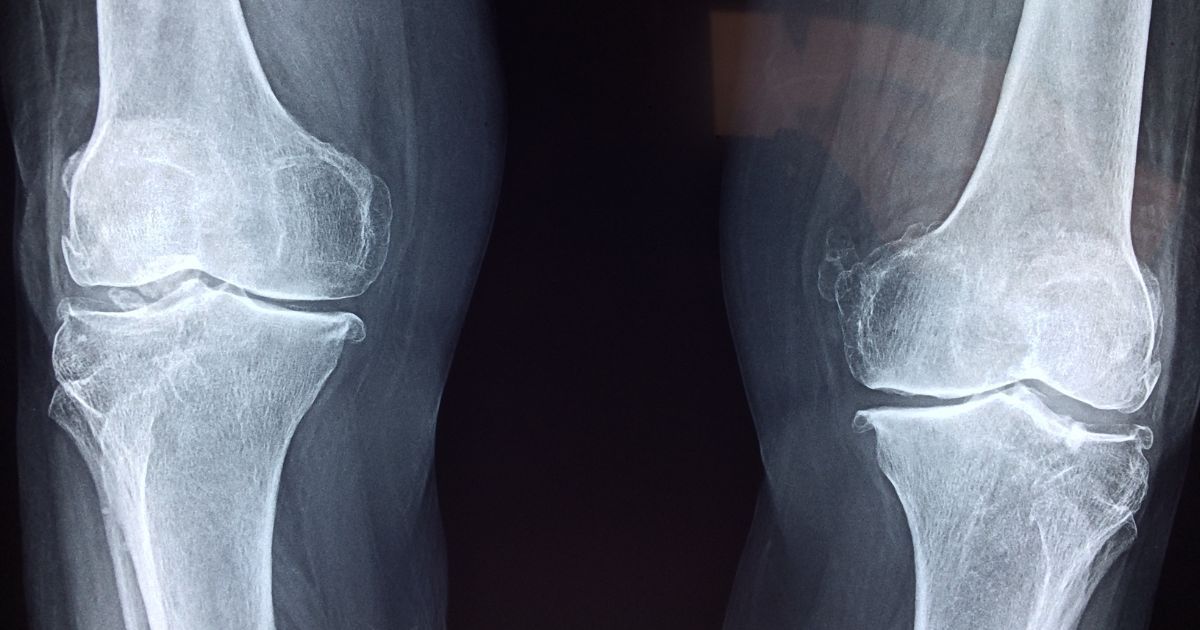
Now that we know what vitamin K2 is and its role in the body, let's explore its health benefits:
1. Bone health and calcium regulation
Vitamin K2 acts like a traffic cop for calcium, directing it to your bones and teeth where it's needed most. Instead of accumulating in your soft tissues, which can be harmful to your blood vessels and kidneys. This helps maintain strong, healthy bones and reduces the risk of osteoporosis.
2. Heart health
Vitamin K2 keeps your heart happy by preventing calcium from building up in your arteries. This helps reduce the risk of heart disease and keeps your cardiovascular system running smoothly.
3. Brain function and cognitive health
Vitamin K2 supports brain health by helping regulate calcium in the brain, which is essential for proper neuron function. It also has potential anti-inflammatory properties that may protect against neurodegenerative diseases like Alzheimer's.
4. Dental health
Vitamin K2's calcium-regulating abilities extend to your teeth as well, contributing to strong enamel and overall dental health.
5. Cancer prevention
Although more research is needed, some studies suggest that vitamin K2 may have cancer-fighting properties by inhibiting the growth of cancer cells and promoting apoptosis (cell death) in tumors.
How to Get Enough Vitamin K2
To make sure you're getting enough vitamin K2, follow these tips:
- Diet: Incorporate K2-rich foods into your meals, such as natto, certain cheeses (like Gouda and Brie), and grass-fed animal products like butter and meat.
- Supplements: If you're not getting enough vitamin K2 through diet alone, consider taking a supplement. Consult with your healthcare provider to determine the appropriate dosage and form of vitamin K2.
The Synergy between Vitamin D3 and K2
Vitamin D3 and K2 are like the dynamic duo of bone health.
They work together to ensure optimal calcium absorption and regulation in your body.
Maintaining a balance between these two vitamins is essential for overall health and well-being.
Risks and Precautions
Although vitamins D3 and K2 are essential for good health, it's important to be aware of potential risks and precautions:
- Overdose and side effects: Excessive intake of either vitamin can lead to side effects, such as nausea, vomiting, or kidney stones. Always follow the recommended dosages and consult your healthcare provider if you experience any adverse effects.
- Interactions with medications: Both vitamins D3 and K2 can interact with certain medications, such as blood thinners or anticonvulsants. If you're taking prescription medications, consult your healthcare provider before starting any supplements.
- When to consult a healthcare professional: If you're unsure about your vitamin D3 and K2 levels or have concerns about your overall health, it's always best to consult a healthcare professional for guidance.
Bottom Line
We've explored the health benefits of vitamins D3 and K2, their roles in the body, and how to ensure you're getting enough of both nutrients.
By maintaining a balanced intake of these essential vitamins, you'll be well on your way to optimal health and well-being. So go ahead, enjoy the sunshine, and treat yourself to some delicious K2-rich foods! Your body will thank you for it.
Recommended For You...
